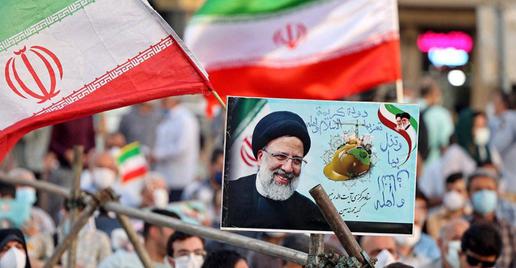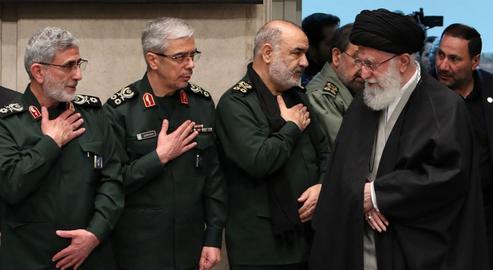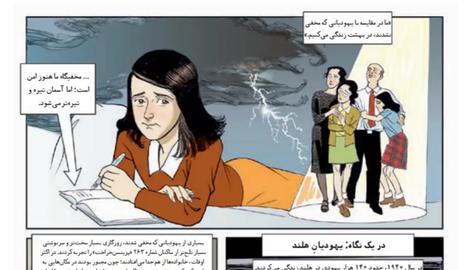Asghar Farhadi’s films fill theaters in a country where taking sides can be dangerous, writes Giles Harvey for the New York Times. They’ve also captivated Hollywood.
Asghar Farhadi, the most successful director in the history of Iranian cinema, may have little interest in global politics, but global politics are interested in him. On Jan. 27, 2017, less than a week after “The Salesman,” Farhadi’s seventh feature film, was nominated for an Academy Award for best foreign-language movie, President Trump signed Executive Order 13769, more commonly known as the Muslim ban. Under its terms, citizens of seven Muslim-majority countries, ran among them, were barred from entering the United States for 90 days — apparently the time it would take the new president to figure out “what the hell is going on.” For Farhadi, a connoisseur of human particularity whose nuanced, open-ended films about the cultural fault lines within Iran have been embraced by audiences around the world, Trump’s order was an offense both moral and intellectual. In a statement released two days later, he announced his decision to boycott the Oscars and also alluded to the history of “reciprocal humiliation” that lay behind present-day American-Iranian hostilities. Given the circumstances (the collective punishment of an entire religious group), that “reciprocal” showed extraordinary equanimity — not that anyone who had seen the film for which Farhadi was nominated, a painstaking psychological inquest into the rival claims of reciprocally humiliated parties, would have been surprised.
Iran is 11 ½ hours ahead of Los Angeles (or, if you are going by the Persian calendar, 622 years behind), so it was early morning, Tehran time, when Farhadi sat down, along with his family and a group of close friends, to watch the 89th Academy Awards.
Iranian state TV, which is heavily censored by the country’s political and religious authorities, doesn’t broadcast the ceremony, but the Farhadis, like most of their compatriots, own an illegal satellite dish that picks up foreign programming. (Farhadi is married to the film and television director Parisa Bakhtavar, whose cinematic debut, “Tambourine,” released in 2008, centers on a young couple trying to raise cash by installing satellite dishes in a Tehran apartment building.) These dishes aren’t always reliable, however, and on the morning in question, Farhadi’s was on the fritz. A repairman roused from his sleep was unable to fix the problem. Finally, a friend on the other side of town who was streaming the show using a VPN managed to set up a remote connection between his computer and Farhadi’s laptop, and the group huddled around. The feed went live just in time for them to see Shirley MacLaine and Charlize Theron announce that the Oscar was going to “The Salesman.” When Farhadi spoke to his downstairs neighbor the following day, she said she thought there had been an earthquake, such was the commotion coming from the director’s apartment.
Farhadi had asked two Iranian-Americans, Firouz Naderi, a former NASA scientist, and Anousheh Ansari, a tech entrepreneur and the first female space tourist, to represent him at the ceremony. (Naderi said he believed they were chosen to make the point that borders are invisible from outer space.) As Farhadi’s living room in Tehran quieted down, his surrogates in Los Angeles took the stage. He was not there, Ansari explained in a speech written by Farhadi, “out of respect for the people of my country” and the six other nations targeted by Trump’s executive order. By dividing the world into “us” and “our enemies,” the speech continued, Trump was creating “a deceitful justification for aggression and war.” Farhadi’s words were warmly applauded within the Dolby Theater, but the conservative commentariat was less receptive. “We give an Iranian filmmaker an award & he writes us a lecture on our government,”
Lauren Cooley, an editor for The Washington Examiner, posted on Twitter. “How about he go lecture his own Iranian leaders?” Cooley and other such pundits may not have realized it, but they sounded like no one so much as their conservative counterparts in Iran, where Farhadi is often accused of pandering to international audiences by presenting an overly negative image of his homeland.
Read the full article for the the New York Times
visit the accountability section
In this section of Iran Wire, you can contact the officials and launch your campaign for various problems




















comments